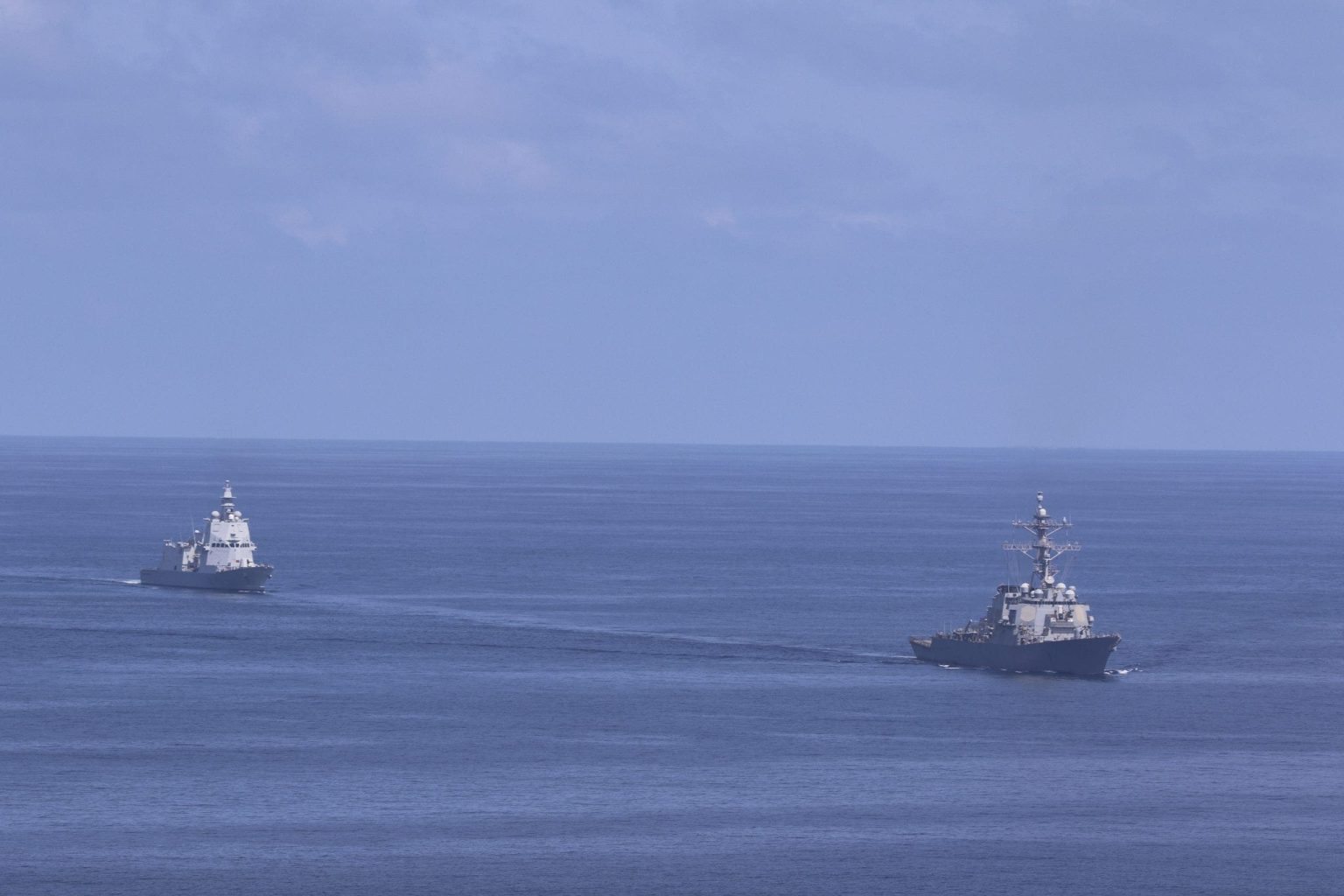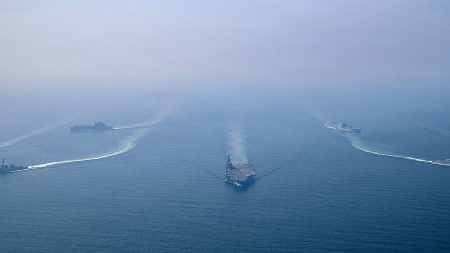The U.S. Navy has once again demonstrated its defensive capabilities in the volatile Gulf of Aden, successfully thwarting a multi-pronged attack by Houthi rebels targeting commercial shipping. On December 9th and 10th, the USS Stockdale (DDG 106) and USS O’Kane (DDG 77), while escorting U.S.-flagged merchant vessels, intercepted and neutralized multiple unmanned aerial systems (UAS), commonly known as drones, and a single anti-ship cruise missile. This incident marks the second successful defense against Houthi aggression in the region within a single month, following a similar engagement that occurred between November 30th and December 1st. These escalating attacks underscore the precarious security situation in the Gulf of Aden and the persistent threat posed by the Iran-backed Houthi rebels to international maritime traffic.
The Houthi rebels, based in Yemen, have intensified their attacks on shipping in the region, driven by their declared objective of pressuring Israel to cease its operations in Gaza. This strategy of targeting commercial vessels, regardless of their origin or destination, highlights the indiscriminate nature of the Houthi tactics and the broader regional implications of the ongoing conflict. By disrupting vital shipping lanes, the Houthis aim to exert pressure on international actors and inject themselves into a separate geopolitical conflict, drawing attention to their cause and seeking leverage in the complex dynamics of the Middle East.
The U.S. Navy’s swift and effective response to these attacks demonstrates its commitment to safeguarding freedom of navigation and protecting commercial interests in the Gulf of Aden, a crucial waterway for global trade. The successful interception of both drones and the more sophisticated anti-ship cruise missile highlights the technological proficiency and operational readiness of the U.S. Navy’s defensive systems. These actions underscore the importance of maintaining a strong naval presence in the region to deter further attacks and ensure the safe passage of commercial vessels.
However, the recurring nature of these attacks raises concerns about the escalating tensions in the region and the potential for further escalation. While the U.S. Navy has successfully defended against these attacks, the continued aggression by the Houthi rebels suggests a growing boldness and a willingness to challenge international norms. The repeated targeting of commercial shipping, even under the protection of U.S. Navy warships, underscores the urgent need for a comprehensive strategy to address the root causes of the conflict and mitigate the risks to maritime security.
The U.S. Central Command (CENTCOM) has attributed these attacks to the Houthi rebels and highlighted their connection to Iran, alleging that the rebels receive backing and support from Tehran. This connection adds another layer of complexity to the situation, raising concerns about Iran’s role in destabilizing the region and its potential involvement in supplying the Houthis with advanced weaponry. The use of anti-ship cruise missiles, in particular, raises questions about the origin of these weapons and the level of technological support being provided to the Houthi rebels.
The ongoing attacks by Houthi rebels in the Gulf of Aden represent a serious threat to international shipping and regional stability. The U.S. Navy’s successful defensive actions underscore the importance of maintaining a strong naval presence in the region, but the escalating frequency of these attacks necessitates a broader strategic approach to address the underlying causes of the conflict and prevent further escalation. The alleged Iranian support for the Houthi rebels adds another dimension to the challenge, highlighting the complex geopolitical dynamics at play and the need for a comprehensive and coordinated international response to ensure maritime security and stability in the Gulf of Aden.















